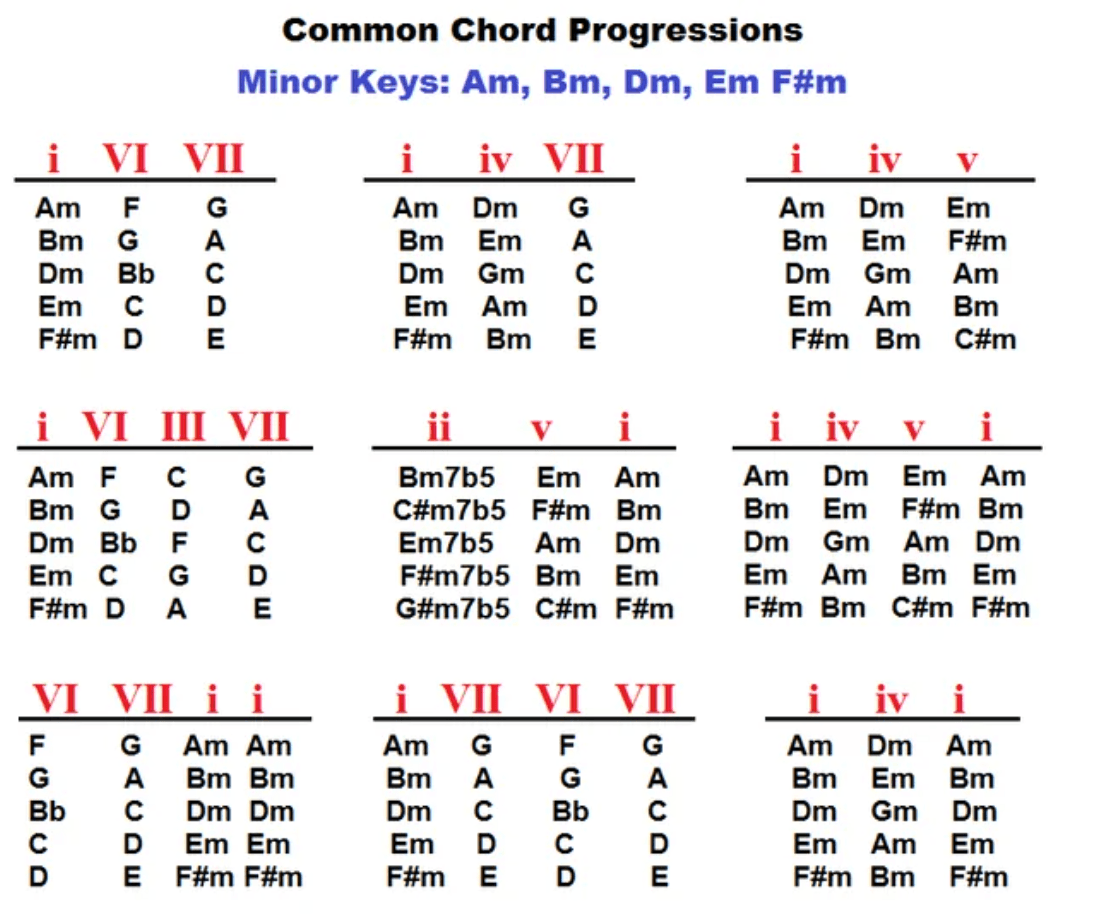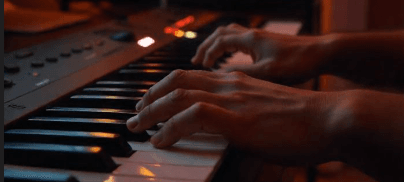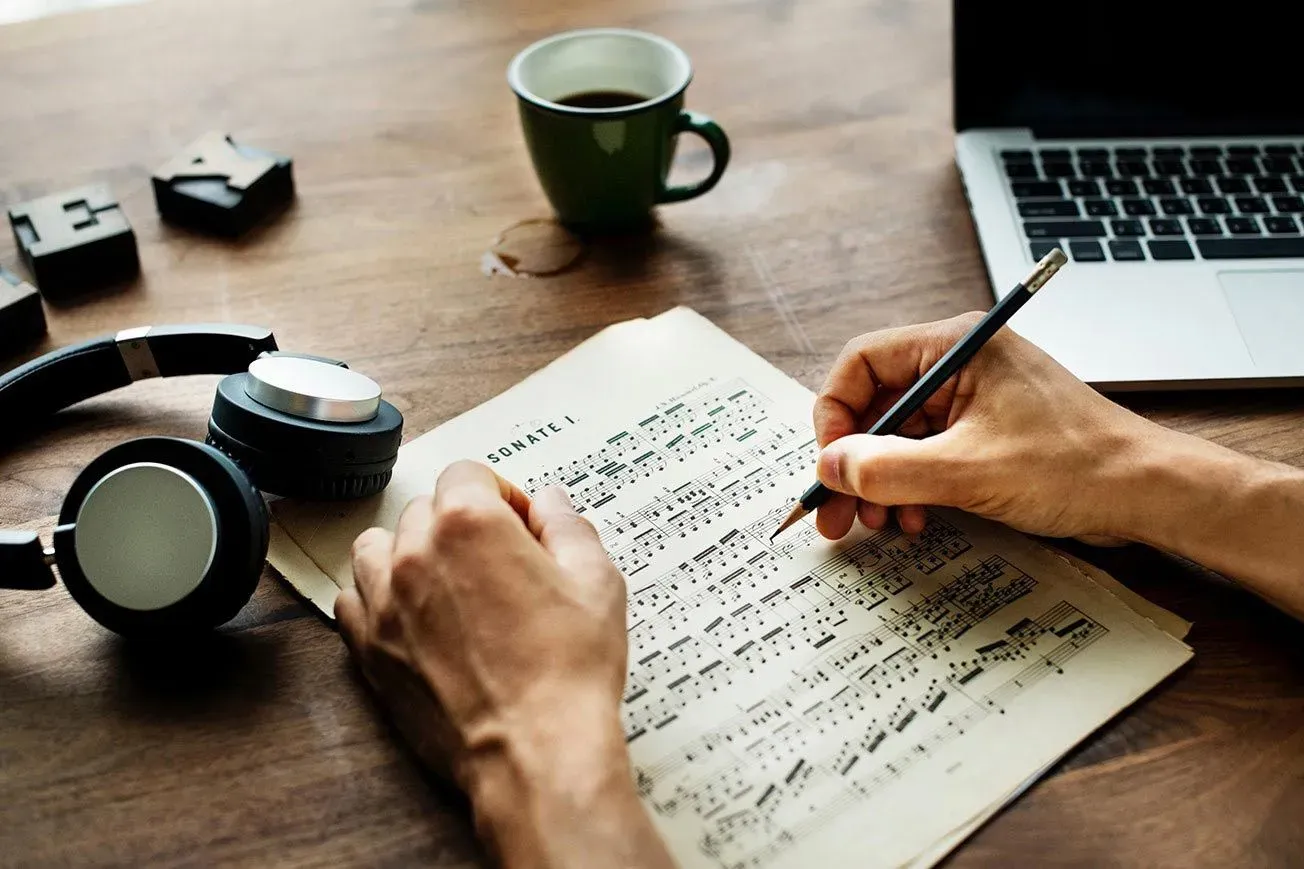The stage is set, the audience hushed, but as the baton lifts, it's not just human hands at play.
The question, "will AI replace musicians?" strikes a chord with enthusiasts and skeptics alike.
Yet, as we peel back the curtain, the role of AI in music proves to be more of an ensemble than a solo act.
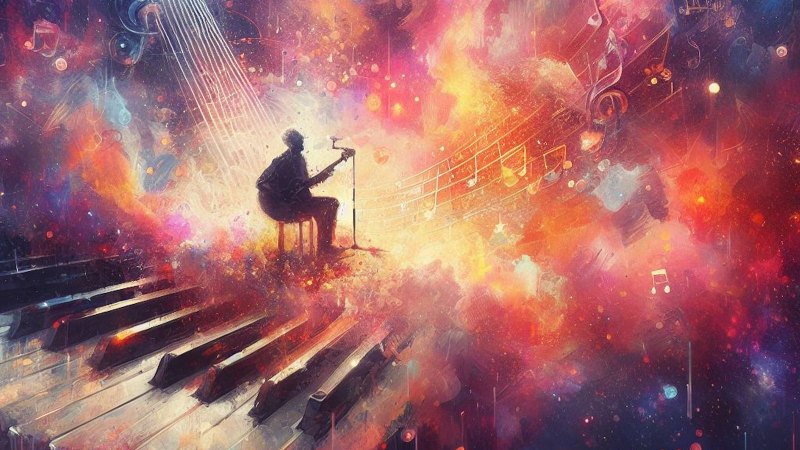
The Rise of AI Tools: A Response to Evolving Needs
The landscape of music production is undergoing a transformation, a metamorphosis accelerated by the burgeoning needs of the digital age.
As content creation proliferates across platforms, the demand for tailored audio tracks has escalated, creating a niche that traditional musicianship alone struggles to fill swiftly and cost-effectively.
This is where AI music tools harmoniously enter the composition, not as a replacement, but as a tool in the music-making process.
Also: Check out these 12 AI Music Tools that Enhance Creativity in Music Production
Bridging the Gap: AI as the Contemporary Composer's Muse
Meeting the Demand for Diversity in Sound
In an era where every social media post, podcast episode, and digital advertisement seeks a unique auditory identity, audio AI tools offer a vast palette of musical options.
They generate diverse soundscapes and motifs, catering to the eclectic tastes of a global audience.
AI doesn't eclipse the musician but instead provides a springboard for creativity, delivering a variety of starting points that can be further refined and personalized.
Economical and Efficient: The Cost-Effective Concerto
Budget constraints can often limit a creator's ability to commission custom tracks. AI-generated music steps into this breach, offering a plethora of sound options without the traditional costs associated with hiring musicians and booking studio time.
This economic efficiency is vital for small creators and businesses, enabling them to feature quality music without incurring prohibitive expenses.
Tailoring Tunes: AI's Customization Cadence
The Personalization Algorithm: Crafting the Soundtrack for Every Niche
AI's capacity to analyze trends and preferences allows it to tailor music for specific niches, creating compositions that resonate with particular audiences or purposes.
This level of customization is not just about fulfilling a brief but about ensuring that the music carries the right tone, tempo, and texture to complement the visual content it accompanies.
The Speed of Sound: AI's Rapid Rhythmic Response
The rapid turnaround time of AI in generating musical elements is unparalleled.
In a world where content production cycles are constantly accelerating, audio AI tools provide an immediate solution to the need for quick music production, delivering quality compositions in a fraction of the time it would take a human composer to conceive and execute a piece.
Supplementing, Not Supplanting: The AI-Assisted Artistry
The Creative Collaboration: AI and Musicians in Harmony
The true purpose of musicians—to inspire, to express, to move—is not something that can be algorithmically replicated.
While AI can generate a catchy tune or an engaging rhythm, the soul of music—the story it tells and the emotions it evokes—remains the domain of the human artist.
AI music tools are therefore best seen as collaborators, providing a framework within which the musician's vision can take shape.
The Brand's Beat: Aligning AI with Artistic Integrity
For artists, music is a medium of identity, a means of articulating their unique brand and vision. AI-generated music can serve as the backdrop, but the narrative depth, the personal touch that fans connect with, that's the artist's own.
In this way, AI becomes an instrument in the artist's repertoire, a means to an end, not the end itself.
In this evolving musical ecosystem, AI tools stand not as usurpers but as facilitators, answering the call of changing times and needs with a suite of capabilities that support and enhance the creative journey.
The Artist's Essence: Beyond Background Music
The art of music extends far beyond the creation of mere sonic backdrops for commercial spaces or digital platforms.
Musicians, true to their calling, weave narratives and evoke emotions, crafting aural experiences that resonate deeply with their audience.
It's a realm where the human element is irreplaceable, where the audio AI tool serves not to supplant the artist, but to amplify their expressive capacity.
Crafting Emotion: The Heartbeat of Music
The Intangible Connection
Music, at its core, is an emotional journey. It's the pulse that listeners feel, the stories that stir them, and the memories that songs evoke long after the last note has faded.
AI might generate a melody that catches the ear, but it is the artist who breathes life into it, infusing the music with the intangible essence that connects on a human level.
The Signature Sound: Branding with a Beat
An artist’s signature sound is their sonic fingerprint, an auditory brand that followers recognize and seek out.
This unique identity, shaped by the artist's experiences, choices, and talents, is something an AI simply cannot replicate.
While AI music tools can assist in the technical aspects of music production, the individuality of a musician's brand—their soul, style, and substance—is crafted only by the artist.
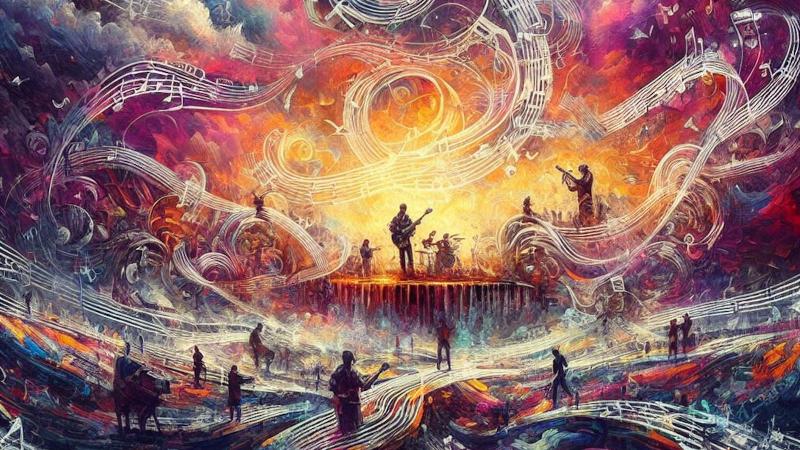
Storytelling Through Sound
The Narrative Symphony
A musician's work is often a narrative, a symphony that tells a story without the need for words.
It’s a narrative carried by the timbre of the instruments, the cadence of the rhythms, and the harmonies that speak to the listener’s heart.
AI lacks the nuanced understanding of human emotion and cultural contexts that are essential for this level of storytelling.
Emotional Resonance: The Human Touch
What makes a piece of music truly connect with an individual is the emotional resonance—the ability to feel the passion, pain, or joy that the musician has poured into their work.
This emotional resonance is inherently human and something that AI, with its binary heart, cannot authentically create or convey.
Integrating AI: Enhancing the Artist's Palette
The Collaborative Canvas
Musicians can leverage AI as a tool to expand their creative palette, using it to explore new textures and possibilities within their compositions.
AI tools can lead to innovative fusions of genres and styles, pushing the boundaries of traditional music production.
The Technical Muse: AI in the Creative Process
Audio production can be a technically demanding field, and here AI can play the role of a muse, taking on the more systematic aspects of creation—like mixing and mastering—allowing the artist to remain immersed in the creative flow without getting bogged down by technicalities.
Musicians stand at the helm of their artistic ship, with AI as the wind in their sails—an aid in navigating the vast ocean of music creation. AI can summon a melody, set a rhythm, and even harmonize, but the story, the emotion, and the brand that turns music into an experience—that's the musician's unique domain.
AI as a Catalyst for Creative Opportunities
The advent of AI music tools has ushered in a new era for artists and entrepreneurs alike—a renaissance of creativity where the mundane is managed and the artistic is accentuated.
AI emerges not as a competitor in the creative arena but as a liberator, an enabler of opportunities that allows humans to focus on what truly matters: the creation of impactful, inspiring work.
Empowering the Artist: Offloading the Administrative
The Automated Assistant: Managing the Mundane
For the artist, the journey of creation is often laden with administrative tasks that can encroach upon the time and energy reserved for artistry.
Audio AI tools step in as automated assistants, adept at handling the day-to-day tasks that, while necessary, offer little in terms of creative fulfillment.
Drafting proposals, scheduling sessions, and managing correspondence—these tasks are efficiently executed by AI, freeing the artist to dwell in the realms of inspiration and imagination.
Streamlining Creativity: Focusing on the Art
With AI handling the logistical load, artists gain back precious hours that can be devoted to honing their craft.
The audio production process becomes more streamlined, allowing musicians to focus on composition, experimentation, and the nuanced finesse of their work.
The Entrepreneurial Composer: AI's Creative Spark
Ideation and Inspiration: The Human-AI Brainstorm
Entrepreneurs, often wearers of many hats, find AI tools ideal for brainstorming and ideation. Need a fresh concept for a presentation? AI can suggest themes and visuals. Looking for a sound to define a brand? AI can propose a spectrum of auditory options.
However, it's the entrepreneur's vision and experience—that shapes these suggestions into a coherent, influential message.
The Influence of Intention: Beyond the Algorithm
While AI can provide a starting point, the true influence lies in the human capacity for intent and purpose.
It's the entrepreneur's mission, values, and objectives that transform AI-generated content into something with the power to inspire and influence. AI provides the raw materials; the human entrepreneur crafts the masterpiece.
Harmonizing Technology with Human Aspiration
The Symphony of Synergy: AI Tool to Assist in Creativity
AI, when assisting with creativity, can help create a symphony of possibilities. Audio AI tools don't write the music of the future; they provide the instruments and the orchestra pit, but the conductor—the artist, the entrepreneur—decides the tempo and the tone.
Amplifying the Artistic Voice: AI in Support
In this collaborative landscape, AI acts as an amplifier for the artistic voice. It's a support system that reinforces the message, the emotion, and the intent of the creator, ensuring that their vision is heard loud and clear, undiluted and true to its source.
AI's role as a catalyst for creative opportunities is clear. It serves to uplift, to ease the burden of the non-creative yet essential aspects of professional life, and to ignite the spark of innovation.
Yet, it is the musician's influence, inspiration, and intent that remain at the heart of creation, steering the course of artistic and entrepreneurial endeavors.
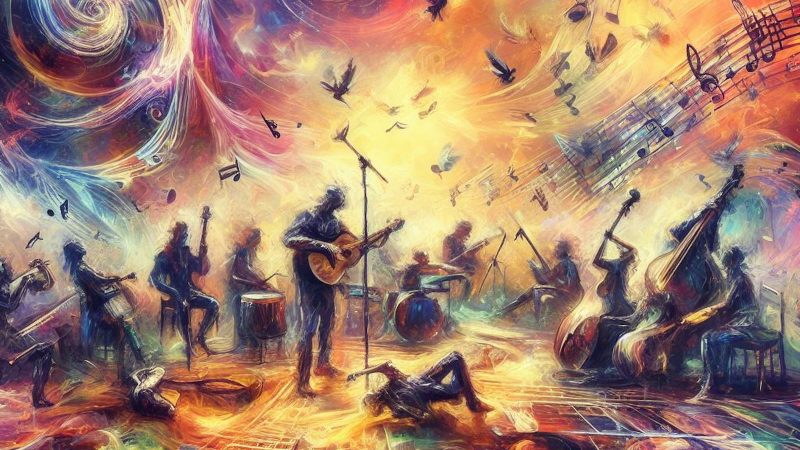
Empress: Your Creative Co-Conspirator
Empress isn't just another audio AI tool; it's a partner in your creative journey. Whether you're an artist seeking that spark or a professional curating a presentation, Empress equips you with the resources to bring your vision to life while letting your unique message shine.
FAQs: AI in Music
Q1: How do AI music tools actually assist musicians?
AI tools can automate the creation of chord progressions, generate melodies, or suggest lyrical content, allowing musicians to find inspiration and build upon a solid base of ideas.
Q2: Can AI help with the business side of music?
Yes, AI can handle tasks like generating SEO-optimized tags, crafting engaging YouTube descriptions, and creating catchy Instagram captions, freeing artists to focus on their music.
Q3: What makes AI tools indispensable in modern music production?
The efficiency and speed at which AI tools operate make them invaluable for meeting the fast-paced demands of content creation across various platforms.
Q4: Does the employment of AI in music production lessen the significance of music created by musicians?
Absolutely not. AI instruments act as additional resources within the musician's arsenal, augmenting the creative process rather than detracting from it.
Q5: Can AI independently produce music that resonates emotionally with listeners?
While AI can generate music, the emotional depth and resonance comes from the musician's creative process.
Follow the future of music with Empress. Check out our blog to learn how you can effectively use these AI music tools.
